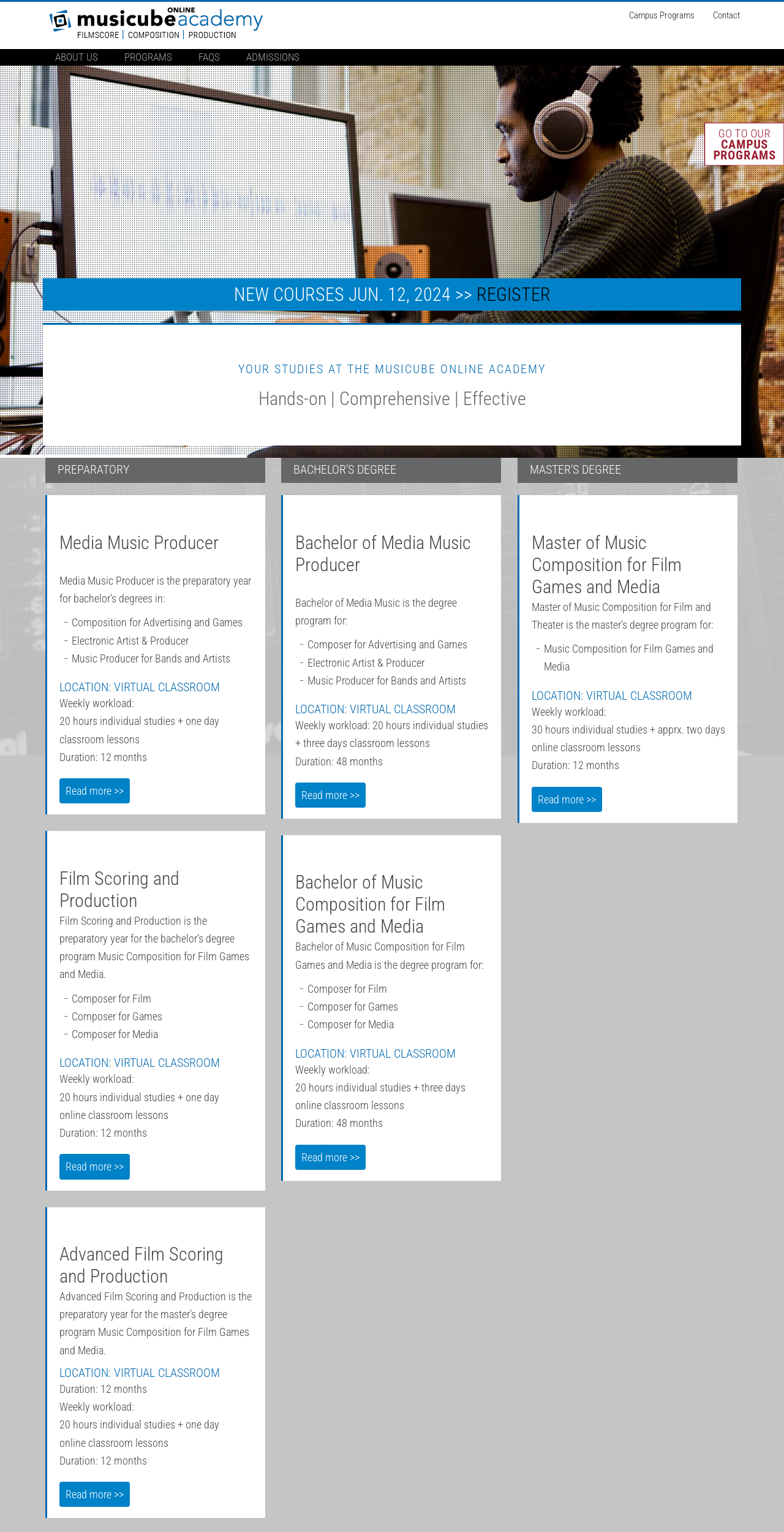Wissenswertes über:
Training in sound engineering for an interesting career
Your education as a sound engineer - bachelor and master.
With an education as a sound engineer, mine has a number of possibilities to become professionally active. The sound engineer and (media) music producer works behind the scenes at many events, coordinating and combining the sounds of individual instruments and voices in such a way that a sound experience is created that inspires. Thus, the sound engineer finds his field of action not only in concerts and theatre performances, but also in sound engineering in the record industry, in radio broadcasts and, of course, in film and television.
To become a sound engineering master or media music producer, you naturally need a corresponding education at university or college. Some schools offer a broad entry into the field of audio engineering, so that one can first learn the basic concepts of the profession and then later commit oneself to a specific job description within audio engineering. In this way, one can do an audio producer apprenticeship or become a music designer or audio producer.
Learning sound engineering is a practical career that gives you the opportunity to try out and apply the theoretical knowledge you have acquired in the recording studio. If you want to become a sound engineer, however, you should have some basic prerequisites. For example, a good ear is of utmost importance for the training. But the ability to work with complete concentration over a longer period of time without being distracted by external influences is also one of the qualities you should have if you want to become a sound engineer. Of course, an interest in music, artistic and dramatic work is also crucial to a successful career as a sound engineer. Working as a sound engineer means that you have to work closely with both musicians, directors and other performers to produce a perfect result. Therefore, you should be prepared to enjoy working in a team and be able to stay calm even in stressful situations.
The term sound technician is not protected in Germany and there are different ways of training to achieve this goal. Many music producers have a university education and have thus acquired a title such as Tonmeister, Tontechniker, Audio-Techniker or Toningenieur. However, there are also academies where one can complete training in sound engineering within one year. The course content includes general music theory, the basics of music production as well as acoustics and sound engineering. A specific school leaving certificate is not required in most sound engineering schools, although most participants have at least a secondary school leaving certificate. Musical aptitude, on the other hand, is of utmost importance and is often tested by an aptitude test before admission.
University and college studies for everyone:
However, the profession of sound engineer or media music producer is not only interesting for young university graduates from these disciplines. Even people who have been interested in sound engineering in their private lives and who work in other professions often decide today to turn their hobby into a career. Schools for sound engineering are ideally suited for these people to realise their professional aspirations. After completing sound engineering training, there are opportunities for further education. For example, you can specialise in sound engineering or become a music producer. Although the number of jobs available for sound engineers and music producers is rather limited, it is possible to work as a freelancer. If you understand your work, you can find good jobs and expect daily salaries between 250 and 500 euros.


